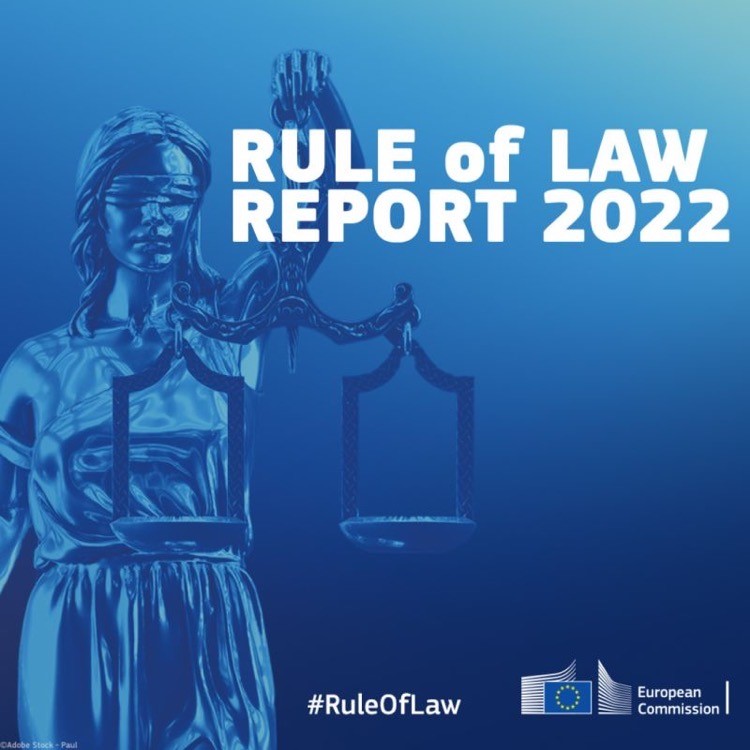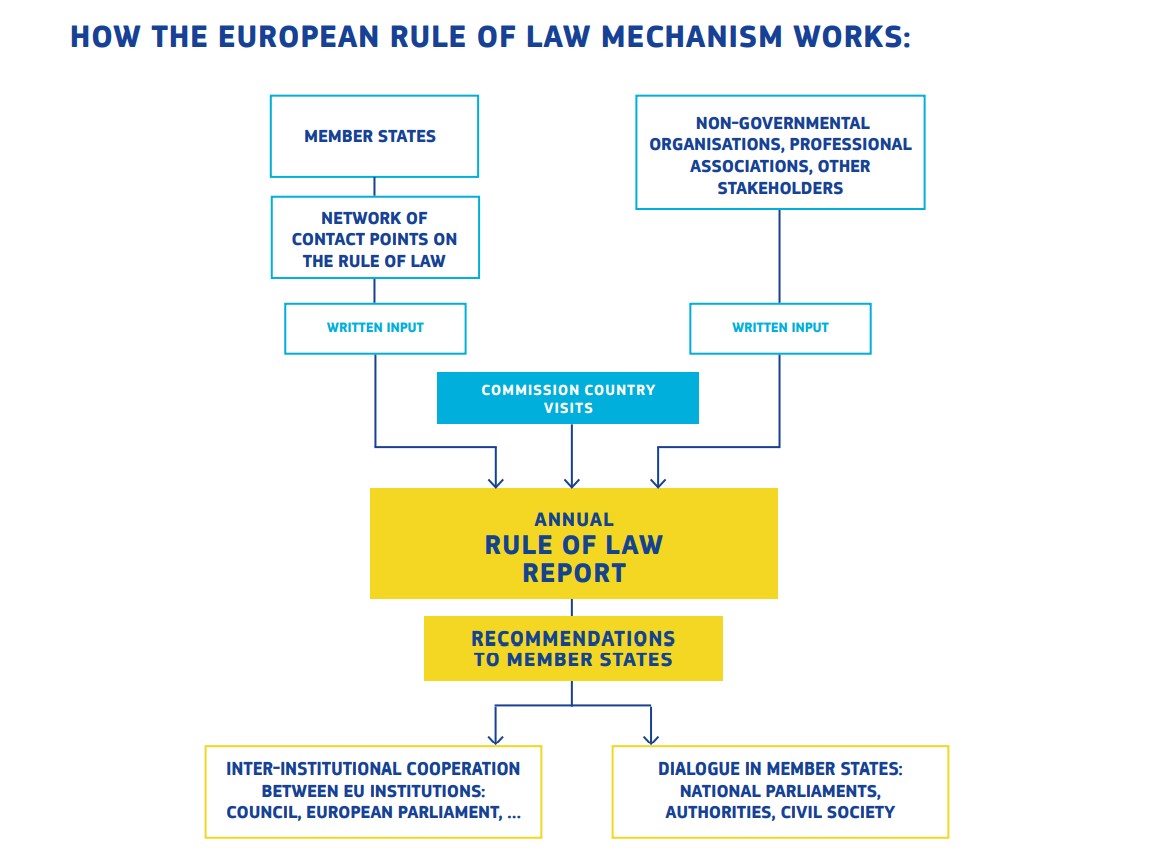The third annual Rule of Law report is out

date: 13/07/2022
The report is the foundation of the European Rule of Law Mechanism (i.e. the process for an annual dialogue between the EU institutions and the Member States, to help them safeguard the rule of law). It looks at both positive and negative rule of law developments in the EU and every Member State by analysing four key areas: justice systems, the anti-corruption framework, media pluralism and freedom and other institutional issues linked to checks and balances.

The 2022 Rule of Law Report shows that rule of law reforms have continued to take place in many EU countries to address challenges identified in the previous two editions and great progress has been made. At the same time, it shows also that there are still issues to be addressed and work to be done.
For instance, concerning the justice systems, in many cases, judicial independence was strengthened, appointment procedures or autonomy of prosecution services improved, but systemic concerns remain in some Member States, for example regarding appointments in higher courts, selection procedures of court presidents or the independence of prosecution services.
The same goes for anti-corruption frameworks. The EU is one of the least corrupt regions in the world and many Member States strengthened their anti-corruption policies even further, but corruption remains a serious concern for EU citizens. Some 68% believe that corruption is widespread in their country, the most recent Eurobarometer findings show.
Regarding media freedom and pluralism, the report shows that several Member States have adopted, stepped up or are considering measures to improve journalists' safety and working conditions, building on recent Commission initiatives. But here as well, concerns remain. For the first time, the report looks into public service media.
The fourth area assessed is the quality of legislative processes and the system of checks and balances by Constitutional Courts, which also continued to improve in the majority of Member States, but again, some Member States really should address challenges, for example regarding the formal framework to consult stakeholders or the funding issues, negative narratives and restrictions to their operating space that civil society organisations continue to face. For the first time, the report also looks at Member States' implementation of judgments by the European Court of Human Rights.
The main novelty of the 2022 Rule of Law Report is the 27 country-specific recommendations, presented in the form of 27 country chapters. In each country-specific report, the Commission deepened its assessments from the previous reports and collected more information, including through more than 500 country visits and discussions with nearly 700 national authorities, such as the judiciary and law enforcement bodies, but also journalists' associations and civil society organisations.
